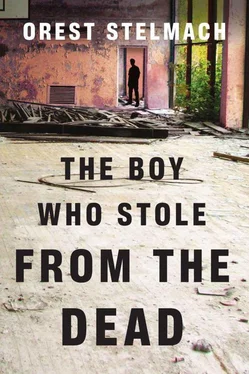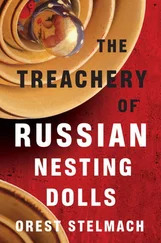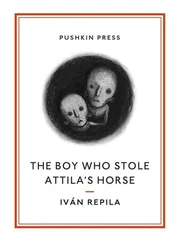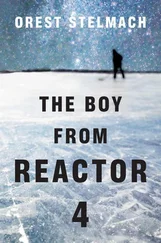At least not on the street. In the park, it was an entirely different matter. He’d been teaching them chess since the grass had thawed. They were both quick learners. This was not entirely surprising since they were expert computer hackers. In personal style, they were quite different. The Ammunition loved the Queen’s Gambit. He sacrificed pawns for a stronger center and routinely exposed his king. He was bold and decisive. The Gun, on the other hand, preferred the Pirc Defense. He allowed his opponent to build an imposing center and turned it into a target for attack. He was patient and clever.
In Victor’s experience as a thief and a con man, chess was a manifestation of a man’s likely behavior on the streets. Individually, the twins could be beat. Together, however, they were invulnerable. As long as their coach optimized their collective skills.
Victor moved his knight and completed the Berlin Defense.
“Checkmate,” he said.
The Ammunition stared at the table and swore.
Victor changed seats to face his brother. Twelve moves later he beat the Gun. The brothers had now lost a combined seventy-two consecutive matches.
“Eventually, one of us is going to beat you,” the Ammunition said in Russian.
“It’s only a matter of time,” the Gun said.
“The day either of you beat me is the day you should leave me,” Victor said.
“We’d like to make some money first,” the Gun said. “I know a guy in Brighton Beach who knows about a shipment of marijuana coming in through New Jersey. The protection’s weak. It would be an easy score.”
“No it wouldn’t,” Victor said.
“How do you know?” the Gun said.
“If it was easy, the guy from Brighton Beach wouldn’t be asking for your help.”
“I met a girl who works as the accountant in the home office of a big department store,” the Ammunition said. “She’s a user. She needs money. She has access to a database of credit cards. We could keep the upfront payment low. Pay her a back-end once we turn them over.”
“Your final reward may not be to your liking,” Victor said.
“Why do you say that?” the Ammunition said.
“Because users inform on others when their habit lands them in jail.”
The Timkiv twins rolled their eyes at each other.
“You’ve got to let us work, Victor,” the Ammunition said.
“Yeah, Victor,” the Gun said.
Victor spread his palms over the chess tables. “You are working.”
“Not chess,” the Gun said. “You’ve got to let us do something that’s going to put money in our pockets.”
“Exactly,” Victor said. “I’m glad we’re on the same page.”
The twins frowned.
Victor’s cell phone vibrated. He stepped away for some privacy and answered it. When he heard his daughter’s voice, his heart soared, as always.
“Anything new from Iryna?” Victor said in Ukrainian.
“No,” Tara said. “Father, why did you ask Iryna to get involved with that boy? What’s so important about this locket you want her to find for you? It’s just a piece of jewelry his father handed down to him before he died, isn’t it?”
“Maybe,” Victor said. “Maybe not. It’s best not to get into details right now.”
An old friend had bought a watch on the street from a desperate-looking man for twenty dollars, thinking it was gold. When he scratched the back of the face, however, it turned out to be gold plated. Beneath the gold were a man’s initials. When Victor saw this, he wondered. What if the priceless formula for a radiation countermeasure was etched on Adam Tesla’s locket beneath the gold plating?
“The fact the boy never let Iryna touch the locket after a month of dating tells me something,” Victor added. “Especially given she asked to take a look at it while it was hanging around his neck. And he refused.”
“What does it tell you?”
“That I’d like to have a look at it myself.”
“But how could a piece of old jewelry be so valuable you’d want to steal it?”
“Your father is a thief, sweetheart. Always was. Always will be. Beyond that you don’t need to worry yourself about anything. Know that I’m doing my best to leave you and my grandson as big a fortune as humanly possible.”
“Yes. I know that.”
Victor could hear the excitement in her voice. Money had that effect on even the purest conscience. “That locket must be in prison with the boy’s other possessions. Tell Iryna not to bring it up anymore but to stay vigilant. Tell her to keep listening. And remind her how much she enjoys America compared to her prior life milking cows in the breadbasket of Europe.”
Victor said good-bye and hung up.
Thieves-in-law, members of Voroskoi Mir such as Victor, were not allowed to have families or children. But this was America, not Ukraine or Russia, and most of the old thieves were dead. Who cared if his casual affair with a baker in New York produced a child twenty-eight years ago? He cared. That’s who cared. His discovery that he was a father—and now a grandfather—thirteen months ago was nothing less than a rebirth. He had passion again. He had a purpose again.
And it was a more powerful motivator than anything he’d ever known.
CHAPTER 22

NADIA RETURNED TO New York on Sunday night. On Monday morning, she visited her elderly friend, Paul Obon. His Duma bookstore in New York’s Lower East Side catered to English-speaking people of Ukrainian descent from all over the world.
Obon had immigrated to America with Nadia’s father. She’d known him her entire life. Nadia had called ahead and asked him to see what he could dig up on Ivan Valentin. She also wanted to learn more about Russian oligarchs in general. To better understand Ivan Valentin and discover his son’s connection to Bobby, she thought it would be beneficial to know his world. And she’d be learning more about Simeon Simeonovich as well.
They stood at the front desk drinking tea.
“The oligarchs gained their wealth in two stages,” Obon said. “First, when Yeltsin succeeded Gorbachev in 1991. The Soviet Union had collapsed. The Russians couldn’t feed their people. There was a global recession. They couldn’t trade their resources, couldn’t generate cash. So Yeltsin’s cabinet came up with a voucher scheme. The government offered the population vouchers to buy shares in privatized companies in exchange for cash. Mostly agricultural and service companies.”
“Free enterprise,” Nadia said.
“The average Russian spent a month’s wages to buy a future stake in a private company. But most didn’t understand what they owned. A few did. Hustlers set up kiosks that traded vodka and cigarettes for vouchers. Stalls popped up outside farms and factories. Former KGB agents encouraged people to part with their stakes.”
“If you’re a first generation American and your parents lived behind the Iron Curtain, hearing that is no surprise.”
“It was the same in Ukraine and the other Soviet countries. Yeltsin sold one hundred forty-four million vouchers. That represented half of the entire Russian economy.”
“For how much?”
“Twelve billion dollars.”
“Most large American companies are worth more than that.”
“And that was Yeltsin when he was sober. By 1995 he was drunk and barely in control of the country. There was money laundering, corruption. A group of businessmen made a backroom deal with Yeltsin. They offered to lend him cash if he put up shares in the other half of the economy as collateral.”
“The other half of the economy being natural resources.”
Читать дальше













